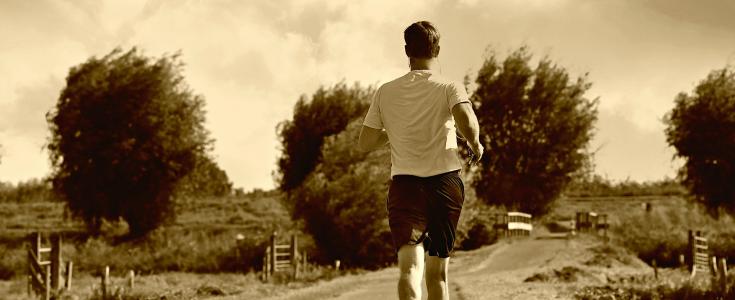Anorexia Athletica: Causes, Complications, and Treatment
Every year, thousands of amateur and professional athletes struggle with anorexia athletica, a lesser-known eating disorder, and variation of anorexia nervosa. Like most major eating disorders, people with anorexia athletica are often described as having an obsessive relationship with exercise, body weight, and food. Although it is similar to anorexia nervosa, anorexia athletica is characterized by a more compulsive focus on the interplay between physical exercise and losing weight.
Why are Athletes Especially Vulnerable to Anorexia Athletica?
In many ways, it’s not surprising that athletes have a high risk of developing an eating disorder. Think about it for a second. Athletes must respond to unique physical and mental pressures on a daily basis, affecting not only their professional careers but also their relationship with their body’s weight and appearance.
In some athletic disciplines, such as running or rock climbing, having a lower body weight confers a tangible competitive advantage. However, in other disciplines, such as boxing or gymnastics, the demands of the sport or its regulatory authority will force athletes to drop or gain weight intermittently throughout the year. As a result, dedicated athletes are far more likely to experience one or more of the following eating disorder risk factors:
- Heightened body awareness
- Compulsive physical training
- Expectation of high achievement
- Public pressure to display and maintain a specific body type
What Causes Anorexia Athletica?
Like many eating disorders, there is more than one cause for anorexia athletica. To emphasize the multicausal nature of this eating disorder, we’ve listed several of the most common underlying causes of anorexia athletica:
- Low self-esteem
- Childhood trauma or abuse
- Bullying during adolescence
- Poor familial relationships
- Inability to cope with stress
- Perfectionistic or narcissistic personality disorder
- Non-suicidal self-injury disorder (NSSI)
- Genetic predispositions toward unhealthy exercise habits
Anorexia Athletica Complications
In addition to more general anorexia nervosa complications, anorexia athletica also leads to long-term hormone depletion and electrolyte imbalances, thereby increasing the likelihood of an athlete suffering one or more serious overtraining injuries. Because their body is in a state of malnourishment, injuries incurred by individuals with anorexia athletica usually either worsen overtime or take far longer than usual to heal.
Anorexia Athletica Treatment
Like many other eating disorders, treatment options for anorexia athletica will usually involve some form of nutritional counseling and extended psychological therapy. In some cases, athletes with anorexia athletica may need to take a break from exercising in order to identify what triggers and perpetuates their eating disorder.
Sources: NASM, Center for Discovery, The Meadow Glade, McCallum Place
Photo: Pixabay
More Articles
More Articles
More Articles
There is currently no approved drug for anorexia nervosa, a common and occasionally fatal eating disorder. Research showed that low doses of a...
In the past, eating disorders were primarily considered to be behavior. This overly-simplistic misunderstanding of the issue only created more...
Sudden light-headedness can be a frightening experience for anyone, particularly if you are unsure of the cause. For many, experiencing occasional...
Maintaining a balanced diet not only keeps our body functioning at its best, it also keeps our skin, hair, and nails looking bright and healthy....
Researchers are closer to finding the genetic cause for binge eating and might be getting closer to an effective treatment. “Based upon our...
More Articles
More Articles
There is currently no approved drug for anorexia nervosa, a common and occasionally fatal eating disorder. Research showed that low doses of a...
In the past, eating disorders were primarily considered to be behavior. This overly-simplistic misunderstanding of the issue only created more...
Sudden light-headedness can be a frightening experience for anyone, particularly if you are unsure of the cause. For many, experiencing occasional...
Maintaining a balanced diet not only keeps our body functioning at its best, it also keeps our skin, hair, and nails looking bright and healthy....
Researchers are closer to finding the genetic cause for binge eating and might be getting closer to an effective treatment. “Based upon our...
When a person begins recovery treatment for anorexia nervosa, they may need to initiate a process known as refeeding. The refeeding process is a...
When a baby is in utero, they develop fine white hairs all over their body. These are known as lanugo hairs and they protect the baby’s skin from...
A new study published in the journal Pediatrics found more than 90 percent of patients with eating disorders not specifically defined (EDNOS) in...
Eating disorders might be hard to talk about, or even to admit to yourself. If you know, or if you even suspect, you have an eating disorder,...
If you suspect your child has an eating disorder, you may feel overwhelmed. There are a few things you should know upfront.
First and...
Eating disorders don't discriminate. They don't care if you're rich or poor, they don't care about your color or gender, and they don't care if...
In the U.S., an estimated one in 200 people develop an eating disorder. That is a startling number, but another number is even more alarming: one...
A lot of what people know about eating disorders comes from "common knowledge." Unfortunately, common knowledge isn't always correct, or it may...
Anorexia is a serious eating disorder that is characterized by an intense fear of gaining weight. In many cases, people suffering from this...
Most people find holidays stressful, but the thought of facing holidays can be overwhelming for a person with an eating disorder. If a special day...
































